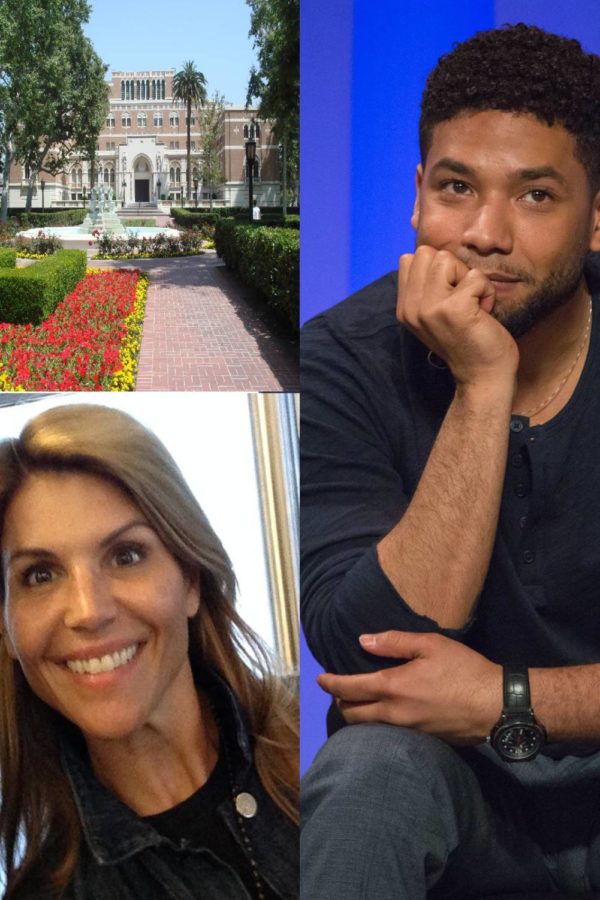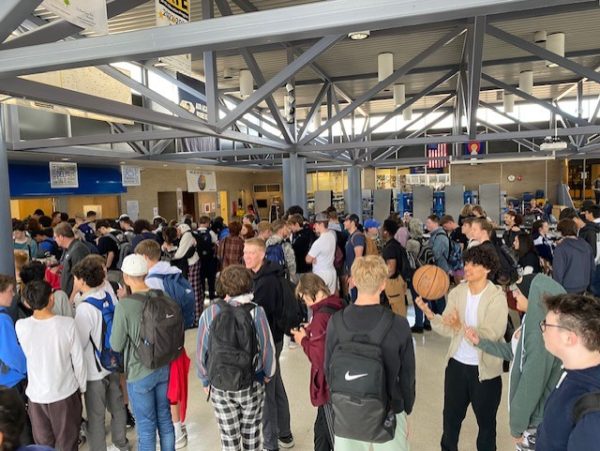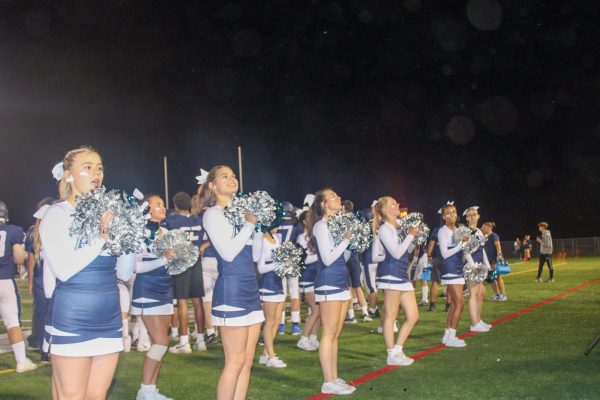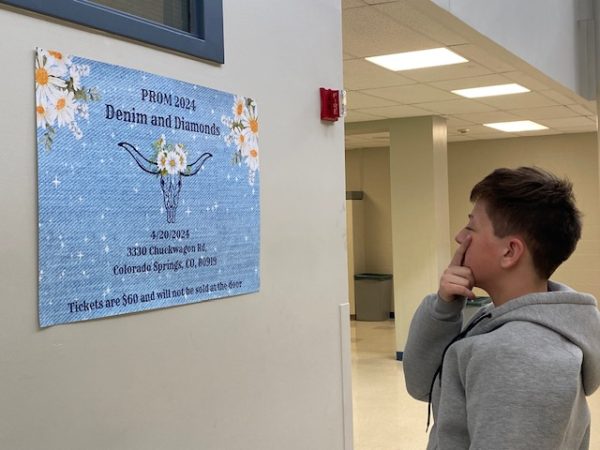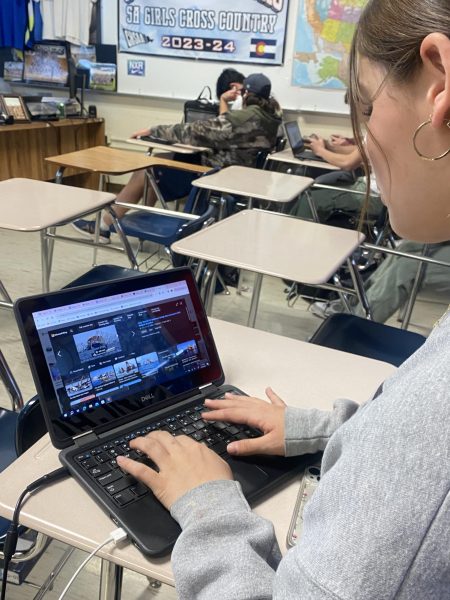In 2019 the American Dream is becoming the American Nightmare
In mid March 2019, the Varsity Blues Scandal broke, implicating celebrity parents in a web of manipulation desperately devoted to getting their undeserving children into elite colleges. Just weeks later, all 16 felony counts charged against actor Jussie Smollett by a grand jury were dropped suddenly and mysteriously to the vocal dismay of Chicago mayor and police.
Clearly, these two stories are disturbingly similar. Besides eliciting rage from the American people and airing eerily close to each other, both cases exposed the privilege of the growing class of American elite.
Throughout American culture, history and society permeates the fundamental idea of the American Dream: that hard work is rewarded. Yet, these stories paint a much more dismal image of the degradation of this dream. They form an image of entitlement, an American Nightmare in which fame and wealth–not hard work–pave the way to the upper echelons of society.
In the Varsity Blues case, famous parents used the battering ram of riches in order to cheat their children into selective universities.
In Smollett’s case, wealth and prominence were able to circumvent the typical workings of the criminal justice system.
Chicago Major Rahm Emanuel said, “One set of rules applies to [the elite] and another set of rules apply to everyone [else].” It seems we are finding this hypocritical distortion of American fairness in all aspects of society, from educational to judicial.
What does all this corruption say about our society? How does it reflect our American identity? Is the American Dream dying?
Before we delve into the implications of these scandals, let’s first go over what exactly they are and how they were able to come to fruition.
Feeling the Varsity Blues
The so-called Varsity Blues scandal was named in reference to the 1999 coming-of-age movie. It encompasses the widespread investigation that uncovered that many students were admitted into highly ranked universities armed with fake SAT scores and–ridiculously enough–photoshopped images of the “student athletes.”

According to Variety, 33 were charged in the scam. Notably involved was Full House actress Lori Loughlin and Hallmark actress Felicity Huffman. Loughlin allegedly paid $500,000 in bribes to get her daughters into the University of Southern California crew team. Moreover, the money was marked off in their taxes, supposedly donated to a fake charity.
The scandal shocked many Americans. However, according to US history teacher Ron Gorr, at least one key demographic was hardly surprised.
“To me…[the scandal] is a ‘no duh’ and maybe I’m cynical…but I actually read an article the other day that said, ‘You know who’s not shocked by this? Teachers.’ Because, we see kids stressing out about going to colleges and parents who are willing to do anything to get them into their colleges…So maybe it’s a cynic, maybe it’s the system we’ve created,” said Gorr.
Just Jussie Smollett
Jussie’s case was certainly more confusing to follow than the former. It had more nonsensical twists than a M. Night Shyamalan movie, many of which were unclear and happened behind closed doors.
It all began on a frigid night in Chicago. According to Smollett, he was going to Subway to get a sandwich when he was suddenly assaulted by two white men wearing MAGA hats. Smollett also reported receiving a threatening, hateful letter prior to this incident. He turned to ABC news to describe his emotional trauma as a victim of a racist, homophobic hate crime, gaining widespread sympathy and support.
However, the tide of public opinion quickly turned as investigators raised suspicions against Smollett’s story. According to NPR, the very same day Smollett’s heart-wrenching interview aired, police apprehended Abel and Ola Osundairo at the Chicago airport as suspects. The two African American brothers had connections to “Empire” (the show in which Smollett acts). Shockingly, shortly after being taken into custody, the brothers implicated Smollett, claiming he paid them to stage the attack.
And things only got more bizarre from here.
Chicago State attorney Kim Foxx recused herself from the Smollett investigation. Additionally, according to NBC Chicago, police claimed Smollett heavily redacted information on his phone before presenting it to them, while Smollett claimed he did so “to protect the privacy of personal contacts or high-profile individuals not relevant to the attack.” On top of all this, the public began to question Smollett’s story, given the two main people of interest from the surveillance footage were black.
On Feb. 20th, Smollett was charged with filing a false police report, and on March 7, a grand jury indicted him under 16 felony counts to be brought before a criminal trial. Police claimed Smollett master-minded the situation in order to promote his career.
The American public was awaiting what was bound to be a highly covered trial when–yet again–the plot thickened.
The Chicago Tribune described that, on March 26, Smollett arrived at the court for a previously unscheduled meeting. Behind the closed doors of the court room, prosecutors announced they were dropping all charges for unclear reasons. This would not exonerate Smollett as innocent, nor condemn him as guilty–it only meant that the case would not go to criminal trial. Furthermore, the prosecutors agreed to seal the court records of these proceedings. According to NPR, the State’s Attorney briefly defended the move, citing Smollett’s record of community service, and his forfeit of his bond.
The Chicago mayor and police were quick to denounce this move, with the police asserting that they had substantial evidence of Smollett’s guilt, and the major calling the situation a “whitewash of justice.”
Since then, the city has sued Smollett for the cost of the investigation (about $130,000), according to The New York Times. Also, Kim Foxx’s involvement in the case is coming into question. At this point, the only certainty is that the Smollett controversy will not be dying down any time soon.
What does it all mean?
All this is coming at the eve of what Gorr called a “New Progressive Age.” “We are seeing people evolve into a frustration that the rich are over-stepping what is comfortable,” Gorr said.
Many of these issues with corruption are intimately connected to a growing disparity of wealth in the US. Therefore, this frustration concerns the very economic foundation of our nation. There is an increasingly partisan divide over the issue as to whether our society should err more socialist, or continue to place our trust in a staunchly capitalist system.
However, there is a nuance to this conversation that many politicians tend to avoid in favor of more extreme stances. In my opinion, we must find a balance: monitoring greed without curbing the innovation and meritocracy of capitalism.
Gorr said, “We’ve always known rich people get more things than poor people. We’re okay with that in our country. If you’re Steve Jobs, no one’s criticizing Steve Jobs.”
Indeed, our very American Dream is based on the idea that hard work and brilliance pays off, and this is not a concept we should so eagerly remove. Rewarding innovators with a high pay check seems fair. Moreover, it benefits all of society as those innovators will use their funds to continue to push the envelope of science and technology.
Yet, while Americans whole-heartedly applaud the Steve Jobs and Elon Musks of the world, we have a measurably harder time with unearned wealth. In the Varsity Blues scandal, Loughlin’s daughter Olivia Jade had her wealth and status as a birth right. She did not earn her mother’s paycheck and credit card, nor did she earn admission into USC. This seems almost contradictory with the “survival of the fittest” mentality of capitalism, because it’s more heinous than pure capitalism–it’s an unfair perversion of wealth allowed by an unfair system.
Gorr questioned,”Why aren’t we blaming universities for allowing this to happen?”
This brings up a fair point. Criticisms have been launched against parents and their entitled children, but the universities have–for the most part–stayed under the radar. Universities, especially selective private ones, have gravitated toward a more “hollistic” approach to admissions. This was a substantial departure from the more objective assessments of the past based almost entirely on GPA and standardized testing scores. It’s not an inherently bad development. After all, students are more than a number. However, the lack of accountability and transparency in these increasingly subjective decisions creates an arbitrary, all-too-easily manipulated system. Add this on top of the fact that a university can easily behave like a money-hungry corporation, and we have a glaring problem.
We need to find a way to assess these matters fairly, and not just in education. In every aspect of our society we are struggling to find a balance between encouraging economic growth while putting our foot down with the shadier dealings of big business–and, to do so, we need to look deeper than the socialism-capitalism binary.
How do we fix it?
Gorr said, “We have the mechanisms. We have the SCC. We have the Sherman Anti-Trust Laws. We have the laws in the books. It’s about enforcing them…If you’re going to demand that immigrants follow laws, shouldn’t rich college kids have to follow the laws too?”
However, this must be done in such a way that is harsh enough to initiate reform, but fair enough to continue to incentivize business. Gorr explained his plan for how he would go about combatting wealth inequality and corporate greed.
“The first thing that has to be done…is the rich have to pay their fair share of taxes. And, what happens is we motivate them to expand their businesses through the trickle-down thinking: by giving them tax breaks, by giving them this. My progressive solution is any company that gets tax breaks has caps…on CEO and executive bonuses…We do it in Major League Baseball. If you spend over this amount on players…you’re taxed. It’s a luxury tax. In England they really don’t have this, so there are six teams in English soccer that can win every year…We try to create that competitive balance. And then, what you do is you take that tax money and you put it into some of those lower markets, those smaller markets,” said Gorr.
I believe another step that must be taken is an increased transparency in government and corporate systems. In the Smollett case, information was concealed from the public similar to the opacity of certain college admissions processes. The more the public knows, the more they can hold institutions accountable for their behaviors.
So, while the American Dream is not necessarily dying, it is becoming a lot more complex. As a society, we have grown increasingly cynical. However, the reaction to these scandals shows that, at the very least, the American public continues to demand fairness. Where we move forward from here in combatting these systemic issues is still to be seen, and will be a hot issue to look out for on the road to the 2020 election.

Hi! I'm Hillary; but, I go by Hill, Larry or anything in between. As a senior with a serious height deficiency, I won't take it too personally if you think...



